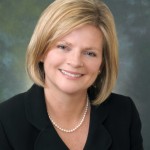Benefits of HOAs Part 4: What do homeowners really think about their associations?
We’ve mentioned already the abundance of news articles criticizing community associations. If these news stories are to be believed, then associations are unpopular indeed. But is it true that residents living in community associations are unhappy with their association? Research by the Community Associations Institute suggests that it is not. In fact, the research suggests that more people than ever are choosing to live in communities with associations, and the overwhelming majority of those people are happy with their association.
Statistics compiled by the Community Associations Institute show that the number of associations continues to grow. In 1970, just ten thousand communities, with a combined 2.1 million residents, were governed by associations. Today there are over 309,000 communities governed by associations. More than 62 million Americans live in associations. 1.75 million volunteers serve on community association boards, and a full 26 percent of the eligible U.S. population volunteers for an association at some point during a year, according to one estimate. That kind of service simply would not happen if associations were as widely disliked as has been portrayed.

Common Interest Communities
Research also indicates that the overwhelming majority of people living in association-governed communities are happy with the experience. In 2009, seventy-one percent reported an overall positive experience living in a community association. Tellingly, that number is the same as it was in 2005, before the foreclosure crisis began straining association resources across the country. Asked if they think members of their association board strive to serve the best interests of the community as a whole, eighty-nine percent of residents said “Absolutely” or “For the most part.” Ninety-one percent of residents say they are on friendly terms with the board members of their association.
Just as we do with leaders in our local municipalities, sometimes we can criticize decisions made by association leaders. However, research confirms that most owners are generally happy with their associations. And just like our local municipalities, these associations depend upon dedicated volunteers behind the scenes, just like the person described in this story of an appreciated and dedicated community volunteer striving to make her neighborhood a better place to live.
The owner-controlled Board of Directors for your association did not draft the restrictive covenants for your community. Instead, your community association was created by restrictive covenants drafted and recorded in the land records by the project developer, and these covenants will not go away. Furthermore, localities encourage the formation of community associations, partly so those associations provide services to their owners, decreasing the demand for services provided by local municipalities. Homeowners associations are here to stay, so get involved with your neighborhood, and make it a better place to live!
Tarley Robinson, PLC, Attorneys and Counsellors at Law
Williamsburg, Virginia



